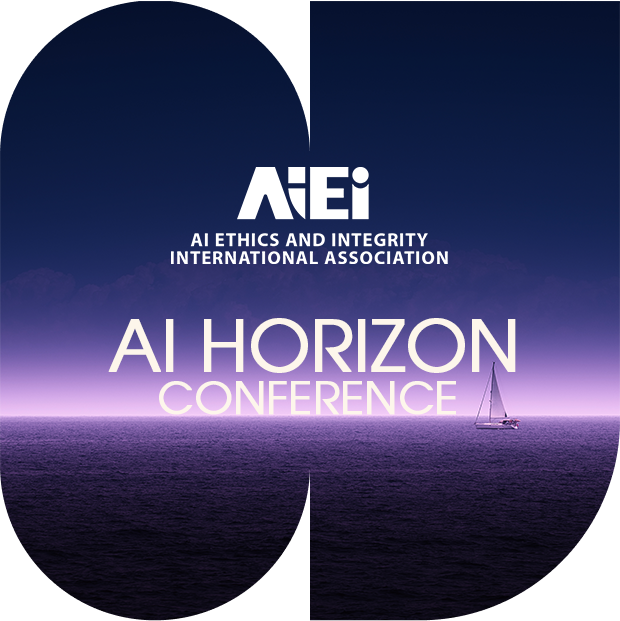ISO 42001 and AIEI Principles: A Complementary Approach for Ethical AI

Artificial Intelligence (AI) continues to transform businesses across all industries, unlocking remarkable efficiencies and opportunities. However, along with its potential comes significant ethical and operational risks. For CEOs and business leaders, managing AI responsibly and ethically has become not merely desirable but strategically essential. This article explores two foundational frameworks for ethical AI management: the international standard ISO 42001 and the ethical principles developed by the AI Ethics and Integrity International Association (AIEI). We’ll demonstrate how these approaches complement each other to help organizations build transparent, trustworthy and ethical AI systems.
Understanding ISO 42001
ISO/IEC 42001:2023 is the world’s first comprehensive international standard dedicated specifically to AI management systems. It sets out guidelines for how organizations should implement, maintain, and continually improve their AI systems management (AIMS). Structured around the familiar Plan-Do-Check-Act cycle, ISO 42001 helps companies integrate AI safely and systematically, addressing associated risks and ethical considerations.
Adopting ISO 42001 is not just a formality it’s a strategic decision. It provides businesses with a robust framework for AI governance, including defined policies, clear roles and responsibilities, risk assessments at every stage of the AI lifecycle and systematic monitoring and improvement processes. Importantly, this standard is applicable to organizations of all sizes and sectors, making it universally relevant.
Ethical Considerations within ISO 42001
Ethics and trust are at the heart of ISO 42001. The standard explicitly addresses ethical principles such as transparency, accountability, fairness, explainability, data privacy, and reliability. Organizations complying with ISO 42001 commit to developing unbiased, transparent AI systems whose decision-making logic can be clearly explained and justified, thereby protecting user privacy and ensuring safe, dependable AI operation.
By adopting ISO 42001, organizations demonstrate their serious commitment to AI ethics, boosting trust with clients, stakeholders, and regulators, particularly as new regulatory frameworks come into force.
AIEI Principles: Beyond Compliance
The AI Ethics and Integrity International Association (AIEI) takes AI ethics a step further, fostering a global community of practice dedicated to ethical AI innovation. AIEI’s Declarative Principles articulate clear ethical commitments, focusing on:
- Human Rights
- Human Oversight
- Fairness and Non-Discrimination
- Privacy and Data Protection
- Transparency and Explainability
- Security and Reliability Accountability
- Social Responsibility
- Environmental Sustainability
- Awareness and Workforce Adaptation
These principles do more than merely echo the requirements of ISO 42001, they expand and deepen them by addressing broader societal impacts and responsibilities.
Practical Support and Community Engagement
Membership in AIEI isn’t symbolic. It offers practical resources, dynamic support and a global network of AI experts and organizations. AIEI provides actionable tools like the AI Ethics Assessment tool, which assists organizations in identifying, evaluating and mitigating ethical issues proactively. Members benefit from ongoing knowledge sharing, case studies, best practices, educational initiatives and recognition programs.
ISO 42001 and AIEI: A Powerful Combination
Rather than viewing ISO 42001 and AIEI membership as alternative pathways, leaders should recognize them as complementary. ISO 42001 establishes a formal governance structure, setting out clear requirements for ethical AI management processes. In contrast, AIEI provides a supportive community, detailed ethical guidance and practical tools for continuous improvement.
Together, these frameworks offer a holistic approach. ISO 42001 addresses how organizations manage their AI (the “how”), while AIEI provides guidance on the broader purpose and values underpinning ethical AI management (the “why”). This dual approach helps organizations not only comply with standards but genuinely embed ethical considerations into their organizational culture.
Adopting both ISO 42001 and AIEI membership represents a strategic advantage. Companies that demonstrate a clear commitment to AI ethics gain significant reputational benefits, build stronger stakeholder trust, and reduce legal and operational risks. Moreover, they become more attractive to investors, talent and customers increasingly concerned about ethical technology usage.
In an era where AI technology evolves fast, ethical leadership becomes synonymous with strategic foresight. CEOs and decision-makers who adopt both ISO 42001 standards and actively engage with the AIEI community position their organizations at the forefront of ethical, responsible AI innovation, ensuring long-term sustainability and success.
By integrating compliance (ISO 42001) and community-driven ethical best practices (AIEI), businesses can confidently navigate the complexities of AI, fully embracing its transformative potential while safeguarding the ethical standards expected by modern stakeholders.
AI Horizon Conference
The AI Horizon Conference brought together entrepreneurs, investors and industry leaders in Lisbon to discuss key trends and shape the future of AI.

 Bern
Bern
 Lisbon
Lisbon
 New York
New York

